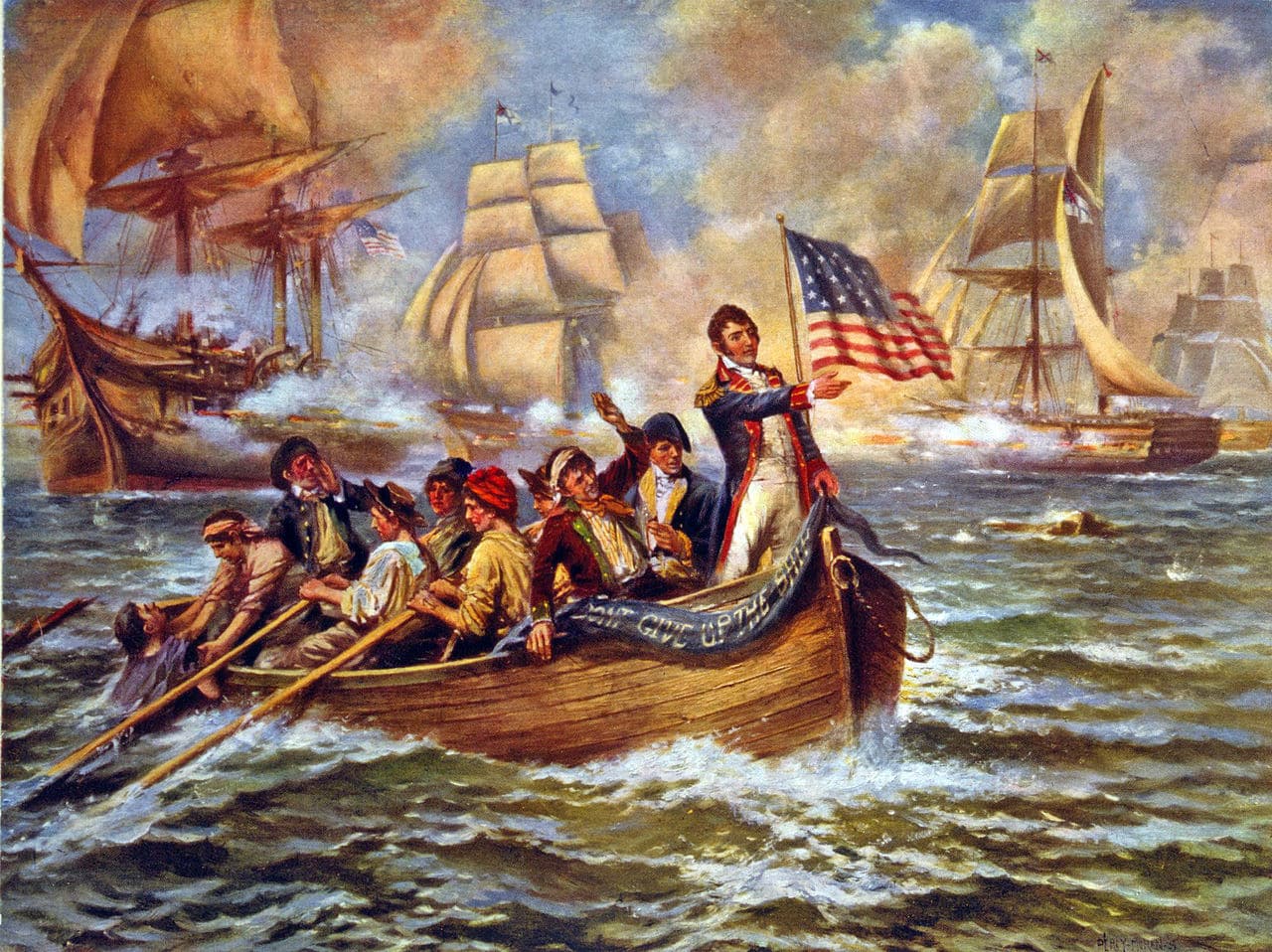Commodore Oliver Hazard Perry was born in South Kingstown, Rhode Island, the son of Captain Christopher Raymond Perry and Sarah Wallace Alexander.

He was an older brother to Matthew Calbraith Perry. As a boy, he lived in South Carolina, sailing ships and practicing for his future career as an officer in the US Navy.
He served in the War of 1812 against Britain and earned the title "Hero of Lake Erie" for leading American forces in a decisive naval victory at the Battle of Lake Erie.
Background
Perry is descended from Scotland's national hero, William Wallace.
Educated in Newport, Rhode Island, Perry was appointed a midshipman in the United States Navy on April 7, 1799.
During the Quasi-War with France, he was assigned to his father's frigate, the USS General Greene.
He first experienced combat on February 9, 1800, off the coast of the French colony of Haiti, which was in a state of rebellion.
During the First Barbary War, he initially served on the USS Adams and later commanded the USS Nautilus during the capture of Derna.
On May 5, 1811, he married twenty-year-old Elizabeth Champlin Mason in Newport, Rhode Island. The dashing young naval officer first encountered his future bride at a dance four years earlier.
The newlyweds enjoyed an extended honeymoon, leisurely touring the New England states. Eventually, the union, always described as a happy one, would produce five children, one of whom died in infancy.
War of 1812
He was given command of the United States naval forces on Lake Erie. He supervised the building of a small fleet at Dobbin's Landing in Presque Isle Bay in Erie, Pennsylvania.
On September 10, 1813, Perry's fleet defended against an attacking British fleet at the Battle of Lake Erie. Perry's flagship, the USS Lawrence, was destroyed in the encounter.
Perry was rowed a half-mile through heavy gunfire to transfer command to the USS Niagara, carrying his battle flag (reading "DONT GIVE UP THE SHIP," the final words of Captain James Lawrence).

Perry's battle report to General William Henry Harrison was famously brief: "We have met the enemy, and they are ours: two ships, two brigs, one schooner, and one sloop."
His victory opened Canada up to possible invasion while simultaneously protecting the entire Ohio Valley. It was one of only two significant fleet victories of the war. The Battle of Plattsburgh was the other.
In 1819, during an expedition to Venezuela's Orinoco River, Oliver Hazard Perry died of yellow fever contracted from mosquitos while aboard the Nonsuch.
Death and Burial
He was 34 years old. Perry's remains were buried in Port of Spain, Trinidad, but were later taken back to the United States and interred in Newport, Rhode Island.
After resting briefly in the Old Common Burial Ground, his body was moved to Newport's Island Cemetery, where his brother Matthew C. Perry is also interred.
